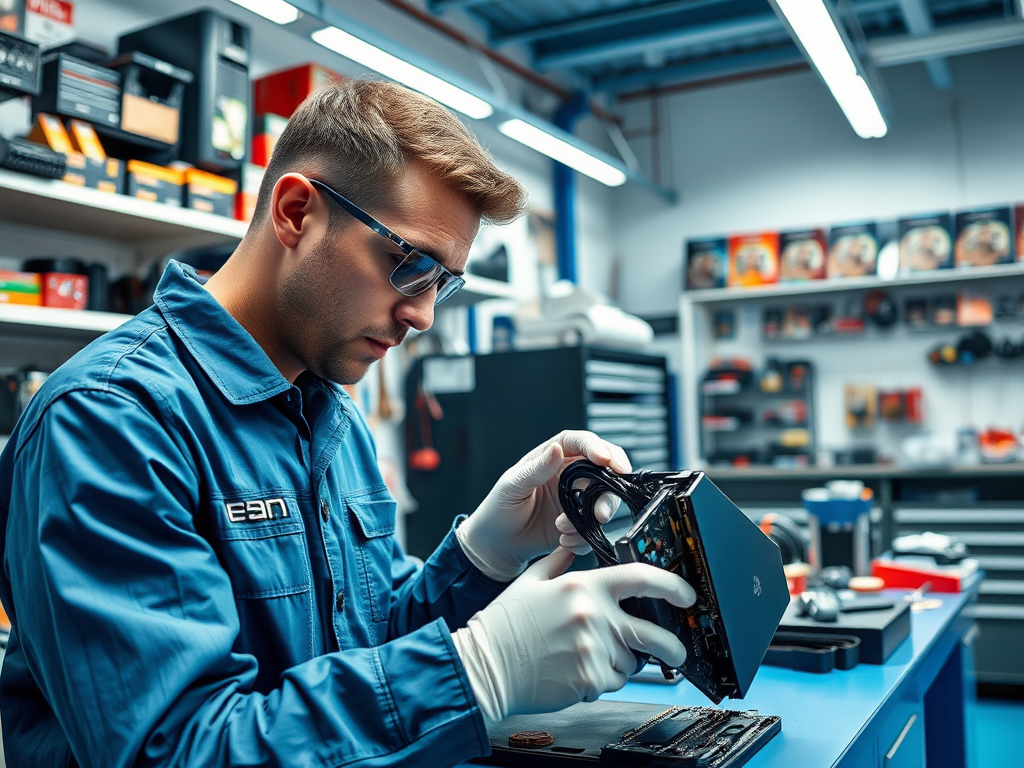In the vast universe of gaming, encountering a malfunctioning system can be one of the most frustrating experiences for avid players. Whether it’s an unexpected error that stops the game in its tracks, or hardware that simply won’t cooperate, knowing where to turn for repair is crucial. But it’s more than just fixing the problem; understanding your options can significantly enhance your gaming experience. A proactive approach not only gets you back in the game sooner but can also save you money in the long run. This guide aims to illuminate the repair landscape, helping you find local resources tailored to your needs. With the right knowledge, any gaming system glitch becomes a mere hiccup on the path to an epic gaming adventure.
Understanding Gaming System Repair

Gaming systems can encounter various issues, ranging from hardware malfunctions to software glitches. Recognizing the symptoms can dramatically shorten the time it takes to find a solution. This knowledge not only empowers gamers but also helps them communicate effectively with technicians. As games become more advanced, the complexities of these systems increase, making it essential to understand the types of repairs commonly needed. With this foundation, you can approach local repair services with confidence, ensuring that you receive the quality help you deserve. Understanding the underlying problems can often save you from more significant issues down the line.
Common Issues in Gaming Systems

Many gamers face similar problems with their systems, which can hinder the gameplay experience significantly. By familiarizing yourself with these common issues, you can better anticipate problems before they escalate. Here are some critical issues often reported by gamers:
- Overheating: Dust accumulation inside the console and poor ventilation often lead to overheating. Regularly cleaning the vents and ensuring proper airflow is crucial for maintaining performance.
- Disk Read Errors: These issues can arise from damaged disks or a malfunctioning disk drive. Keeping your disks clean and properly stored helps to mitigate this problem.
- Power Issues: Problems often stem from faulty cables or power supplies. It’s important to regularly check connections and replace faulty components as needed.
| Common Issues | Causes | Solutions |
|---|---|---|
| Overheating | Dust & Poor Ventilation | Clean vents & Improve airflow |
| Disk Read Errors | Damaged Disks & Faulty Drive | Replace disks & Repair drive |
| Power Issues | Faulty Cables & Power Supply | Check connections & Replace components |
Finding Local Repair Services
Knowing where to get your gaming system repaired is essential for timely restoration. Luckily, a diverse range of local resources is available for gamers in need. Start by considering these options:
- Game Retail Stores: Many retail chains not only sell games but also offer repair services or can recommend qualified technicians in your area.
- Dedicated Repair Shops: Specialty shops focus exclusively on gaming systems, providing in-depth knowledge and expertise that general repair shops may lack.
- Certified Technicians: Always look for certified professionals, as they provide reliable service and focus on quality repairs.
Evaluating Repair Options
Your choice of local repair service can significantly impact your gaming experience. Before making a decision, it’s wise to evaluate your options critically. Key factors include:
- Reviews and Ratings: Check online reviews and ratings to gauge the reputation of the repair shop.
- Service Guarantees: Look for warranties that assure you of the quality of work performed.
- Turnaround Time: Understand how long repairs typically take, especially if you’re eager to resume gaming.
Before you choose a repair provider, ensure you ask these essential questions:
- What types of gaming systems do you repair?
- Are your technicians certified and experienced?
- Do you offer a warranty for your repair services?
- How long will the repair typically take?
- Can you provide customer references or testimonials?
Conclusion
When your gaming system malfunctions, knowing how to find local resources for repair is vital. A solid understanding of common issues and awareness of resources available nearby can make all the difference in getting back to your gaming experience swiftly. By evaluating your options and asking the right questions, you ensure you’re making informed choices. This proactive approach not only can save you time but may also help avoid unnecessary expenses down the line. With these insights in hand, you’ll conquer any system hiccup with confidence, ready to dive back into the world of gaming.
Frequently Asked Questions
- What should I do if my console won’t turn on? Check the power supply, try a different outlet, and ensure there’s no visible damage to the hardware.
- Is it better to repair my gaming system or buy a new one? It often depends on the cost of repair versus the cost of a new system, along with the age of your current device.
- How can I prevent future gaming system issues? Regular maintenance, such as cleaning dust, ensuring proper ventilation, and keeping software updated can help prevent problems.
- What type of warranty should I look for in a repair service? A 30-90 day warranty is common, and it should cover all repairs conducted by the service provider.
- Are there DIY options for minor gaming system repairs? Yes, some minor issues can be addressed with online guides and tutorials, but caution is advised to prevent further damage.


